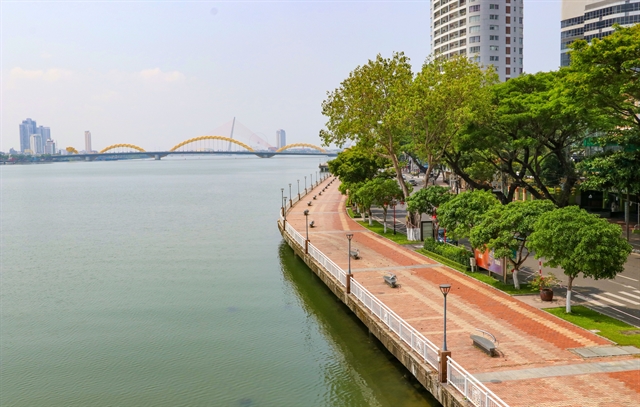 Politics & Law
Politics & Law

The ninth session of the NA is scheduled to begin on May 20 and conclude on June 19, according to NA General Secretary and Chairman of the NA Office Nguyễn Hạnh Phúc.
HÀ NỘI —The ninth session of the NA is scheduled to begin on May 20 and conclude on June 19, according to NA General Secretary and Chairman of the NA Office Nguyễn Hạnh Phúc.
The ninth session would be divided into online meetings from May 20 to 30 and a plenary session from June 10 to 19, he said on Friday.
The online meetings would feature a Government report on socioeconomic performance, a report on public opinions and petitions, and discussions on draft laws and resolutions to be submitted to the legislature for approval.
During the plenary session, lawmakers would discuss several socioeconomic issues, the national target programme on socio-economic development for ethnic minorities, the establishment of a national election council, personnel matters, and the ratification of draft laws discussed at online meetings.
Regarding meetings of NA deputies and voters, he suggested such meetings could be held as normal in some localities with low-risk of COVID-19 but regulations on disease prevention and control must be ensured.
In high-risk areas, delegations of NA deputies could inform the public about the NA’s agenda via mass media and work with the Vietnam Fatherland Front (VFF)’s provincial chapters to collect feedback to send to the NA Standing Committee and the VFF Central Committee.
NA Vice Chairman Phùng Quốc Hiển said that as the Government was focusing on coping with the pandemic in tandem with socio-economic development, the NA’s question-and-answer session would be delayed until the next session.

|
| A section of the pedestrian street along the Hàn River in Đà Nẵng. — VNA/VNS Photo |
Urban administration model proposed in Đà Nẵng
The Government has proposed piloting an urban administration model in Đà Nẵng between 2021 and 2026 to simplify the apparatus and create conditions for the central coastal city to attract more investment while maintaining rapid, sustainable development.
At a meeting of the National Assembly (NA) Standing Committee on Friday morning in Hà Nội, Minister of Planning and Investment Nguyễn Chí Dũng said the pilot urban administration model would abolish people’s councils at district and ward levels and rely on the city' central level council.
The city's administration would involve the People’s Council and People’s Committee.
Districts and wards would retain their people’s committees, which, excluding local law enforcement units, would take over the tasks of the people’s councils, according to the plan.
Ward-level people’s committees would consist of one chairperson, one to two vice chairmen, one chief police officer and one leader of the military command.
Minister Dũng said the pilot urban administration project was based on the results of the city abolishing people’s councils in seven districts and 45 wards from 2009-16, which had met with public support.
Apparatus at district and ward levels had been streamlined and operated smoothly, he said.
Along with the pilot project, the city would be granted a number of specific mechanisms and policies in line with its growth demands.
Most NA deputies agreed with the need to run the model on a trial basis to start with. Some said that specific mechanisms and policies should be studied carefully to ensure their relevance with other cities and create a synchronised legal basis for national supervision.
Others were worried that a single People’s Council would restrict the rights of people and the supervision of people’s councils.
NA Vice Chairman Uông Chu Lưu said Đà Nẵng, with its active growth, needed development plans relevant to its strategic position.
The urban administration model was suitable for Đà Nẵng as the city covers more than 1,000sq.m but without many administrative units.
He said the internal structure of the local administration must be carefully studied to bring into full play the city’s potential, sticking to the rule of decentralisation.
The NA assigned the Government to issue detailed regulations on the functions, tasks and structure of district and ward-level units.
NA Vice Chairman Đỗ Bá Tỵ said the city held a key security and defence role, so the draft resolution on Đà Nẵng’s development until 2045 should clarify opportunities and difficulties that the urban administration model would have in ensuring security and defence.
The NA last year approved a resolution on piloting the removal of ward-level people’s councils in Hà Nội from 2021. — VNS




